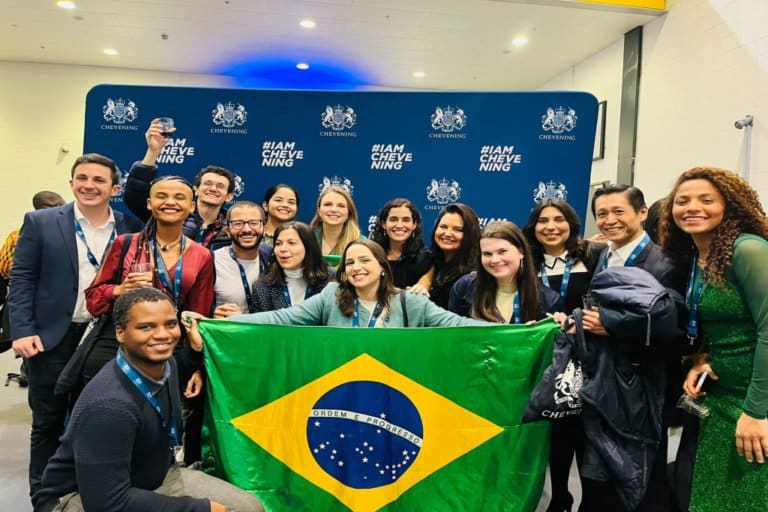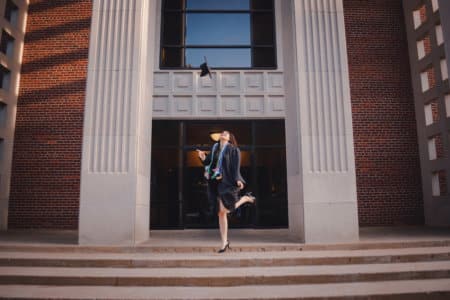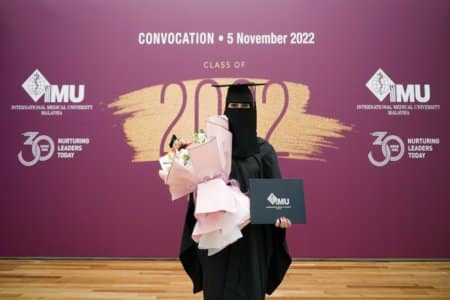
Before Júlia Poletine was a Chevening scholar at the University of Sussex, she was an aspiring changemaker from Recife, the largest city in Pernambuco, Brazil.
Determined to contribute towards gender equality in her country, she completed a bachelor’s in law at the Catholic University of Pernambuco.
“I am a lawyer in Brazil, and I work with women’s rights, notably in gender violence prevention. In addition, I am also a university professor and researcher. I chose the legal area as a way to contribute to civil rights militancy and, within this perspective,” Polentine shares.
She has done her part to ensure that the women in her country are given equal opportunities.
Her contributions include the creation of a project during the pandemic that assisted women in situations of violence, providing free consultation and voluntary psychological care, and writing a book on gender, criminology, and human rights.
But Polentine wanted to do more.
Wanting to further her knowledge in gender studies and explore how other countries deal with human rights, she took a leap and applied for a Chevening Scholarship.
“I always knew that I wanted to do my master’s degree abroad, but I needed the right opportunity that would allow me to live overseas,” she says.
A Chevening Scholarship enables “outstanding emerging leaders from all over the world” to pursue one-year master’s degrees in UK universities.
It covers full tuition fees, economy travel to and from your country of residence, a departure and arrival allowance, visa fees, a monthly stipend to cover accommodation and living expenses, and more.
Poletine is completing a master’s in gender studies at the University of Sussex.
“Being a Latina, from a colonised country, within European lands is still very challenging,” she says.
“Though I did receive support from my teachers and classmates, leaving your country, your comfort zone, to explore the world is never easy,” she says.

“I always knew that I wanted to do my master’s degree abroad, but I needed the right opportunity that would allow me to live overseas,” says University of Sussex student Júlia Poletine. Source: Júlia Poletine
Did you face any challenges as an international student at the University of Sussex?
I faced some challenges moving to the UK with adapting to public transport, food, how people socialise, the climate, and especially the language.
Even if my English is considered fluent, the insecurity of speaking English is prevalent. Not only that, the feeling of being an outsider, an immigrant, is striking at first.
Being a Latina, from a colonised country, within European lands is still very challenging. Though my teachers and classmates were welcoming, the cultural impact was tremendous.
Leaving your country, your comfort zone, to explore the world has its positives and negatives.
I have professional experiences that I never had before, and many doors were opening, but homesickness and loneliness are also challenges that I ended up having to face daily.
What are some biases you have experienced in the field of academia as a woman?
Within the university, even working as a higher education teacher in my country, I often felt that students had doubts about my competence as a young woman.
Some male students always felt free to raise their voices and question my authority.
As a researcher and master’s student at the University of Sussex, I realise how many men occupy positions of power.
Though there have been many changes over the years, this issue is still prevalent.
Is it common for women to face resistance from their society or family in their pursuit of a university education?
Many families still pressure women to have children, marry, and become essentially domestic women with no ambition.
In my country, this reality has been changing a lot. I see that the situation has been changing gradually after several social movements and the strength of feminism.
However, even so, whenever I express my desire to continue living abroad or to do a doctorate in another country, I still hear from family members that I need to get married and stabilise my family first, as if my professional life should be in the background.

Júlia Poletine, now at the University of Sussex, notes the visible difference in safety for women in the UK compared to Brazil. Source: Júlia Poletine
What common problems do women face when integrating into a new country?
These factors can be positive or negative. For example, when I arrived in the UK, I felt safe walking in the street for the first time.
Even today, I find it strange that I leave the house at night, often alone, walk through alleys and dark streets, and don’t feel threatened. For me, this was a very positive point.
This does not mean, however, that here in England, there is no harassment. I’ve been harassed in some pubs in London at least three times, with men touching my body.
It isn’t very easy because you don’t always know where to look for a support network when this happens.
What advice would you give other female students and aspiring researchers?
That they never give up on fulfilling their professional dreams, putting themselves first, and remembering their work can truly impact the society in which they live.
It’s hard to get out of your comfort zone and confront the new, but often these experiences are essential for our personal growth.
Pursuing higher education is challenging but an excellent way to change everything we think is necessary.
It is a means of social transformation, and we need more and more women to research, criticise, write, and bring their experiences to these places.










